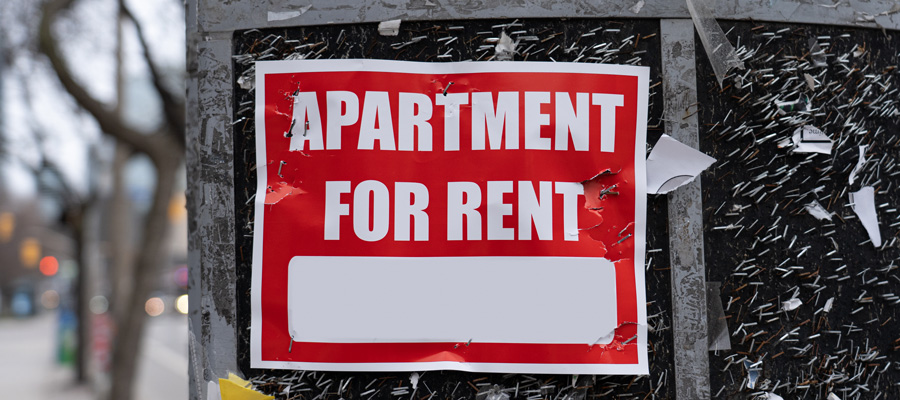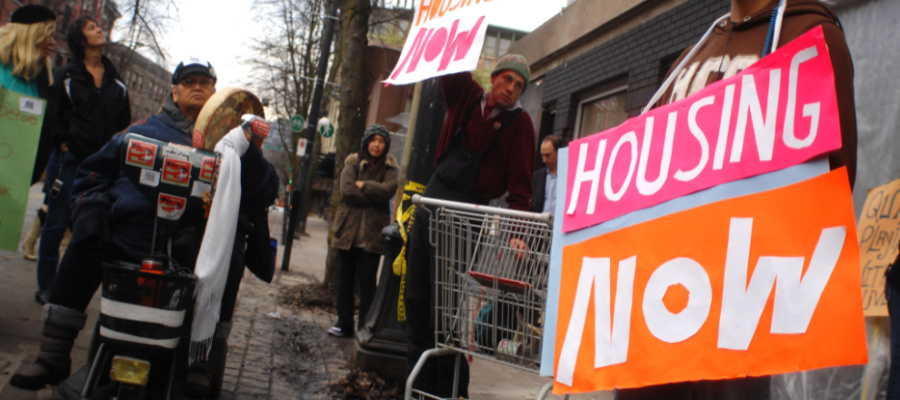Affordability crisis will persist until we get a handle on runaway housing costs

Although inflation has come down from the historic highs recorded in 2022, the cost of living in Metro Vancouver continues to increase rapidly.
It now takes an hourly wage of $25.68 in Metro Vancouver for two parents each working full-time to support a family of four. This is the 2023 living wage for Metro Vancouver, calculated by the Canadian Centre for Policy Alternatives, BC Office and Living Wage for Families BC. It is $1.60 higher than last year because of skyrocketing rents and soaring food costs.
New public investments to reduce child care fees and provide a dental benefit for children, and increases to the Climate Action Tax Credit and BC Family Benefit have put some money in workers’ pockets, but the savings are entirely consumed by rising prices.
Across the province, unaffordable rents and high food costs are driving increases in local living wages. In Greater Victoria, the living wage is now $25.40, a 4.6 per cent increase from 2022; in Kelowna, $24.60, a 7.5 per cent increase; and in Prince George, $22.09, a 4.2 per cent increase.
Many BC employers have stepped up to pay both direct and contract employees family-supporting wages, with nearly 400 certified living wage employers across the province.
The living wage is $1.60 higher than last year because of skyrocketing rents and soaring food costs.
However, the thousands of BC workers who earn less than the living wage in their community face impossible choices—buy groceries or heat the house, keep up with bills or pay the rent on time. The result can be spiraling debt, constant anxiety and long-term health problems. In many cases it means working long hours, often at multiple jobs, just to pay for basic necessities.
You don’t have to be an economist to spot the strikingly large gap between BC’s minimum wage and the living wages across BC. In the last two years, this gap has grown significantly and it’s now close to nine dollars per hour in Metro Vancouver.
Rent is the most expensive item in the Metro Vancouver living wage family budget and the fastest growing as the housing crisis continues to deepen. To have any hope in tackling the affordability crisis, BC needs to get a handle on runaway market rents.
First, governments must massively increase investment in public and non-profit housing.
Creating deeply affordable housing requires public subsidies, grants and land contributions. Increased taxes on wealthy landowners can help fund these. But public investment in non-market housing can also be funded in part through the rental income it generates.
Second, policymakers must address the shortage of homes.
The Canada Mortgage and Housing Corporation estimates that BC needs to build 610,000 more homes by 2030 above trend, which is consistent with findings of independent analysts. Addressing the shortage requires, among other things, dismantling exclusionary municipal zoning policies that effectively ban new apartments on the vast majority of residential land.
The BC government recently stepped in to allow small-scale multiplex housing across most cities and highrises near rapid transit, but much broader mid-rise apartment zoning is still needed.
Rent is the most expensive item in the Metro Vancouver living wage family budget and the fastest growing as the housing crisis continues to deepen.
Third, these efforts should be complemented by stronger rent controls since easing the overall housing shortage will take time.
Today, when rental homes are vacated, landlords are free to raise rents to whatever market rate a new tenant is willing to pay. And they do.
This creates an enormous gap between the rents that new and long-term tenants are paying. In 2022, the average asking rent for vacant units was 43 per cent higher than the average for occupied units in Metro Vancouver according to CMHC data.
Bringing in a vacancy control policy would mean capping rent increases even when tenants move out and a unit is re-rented. This can help curb spiking rents and reduce landlords’ incentive to evict tenants.
Some fear vacancy control would suppress investment in new rental housing, but this can be avoided if it exempts new buildings and is paired with ambitious zoning reform.
BC’s lowest-wage workers need a raise but the labour market alone can’t solve all economic insecurities. Governments can and should do more to address the cost of living crisis that people are facing across the province.
Topics: Employment & labour, Housing & homelessness, Taxes


